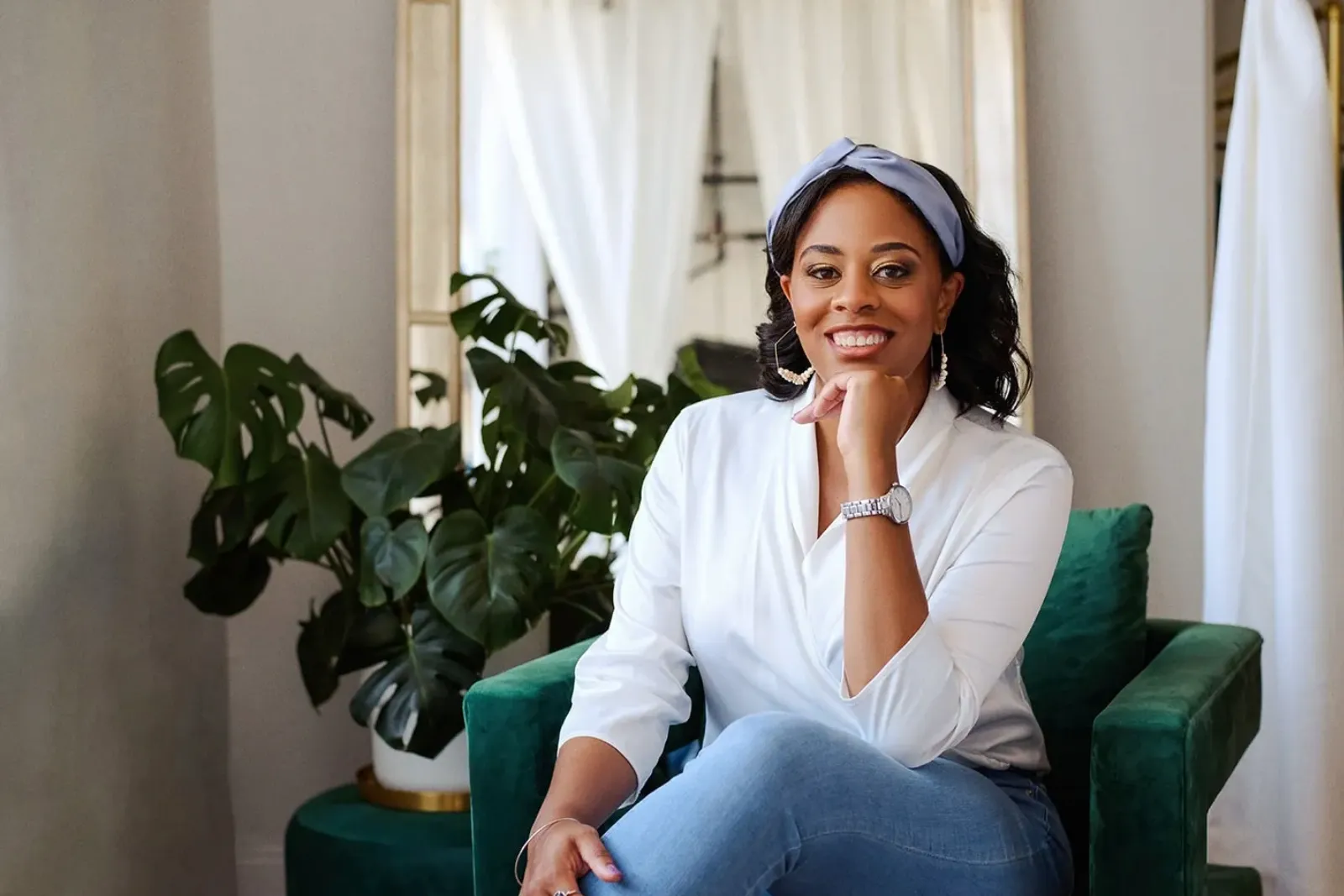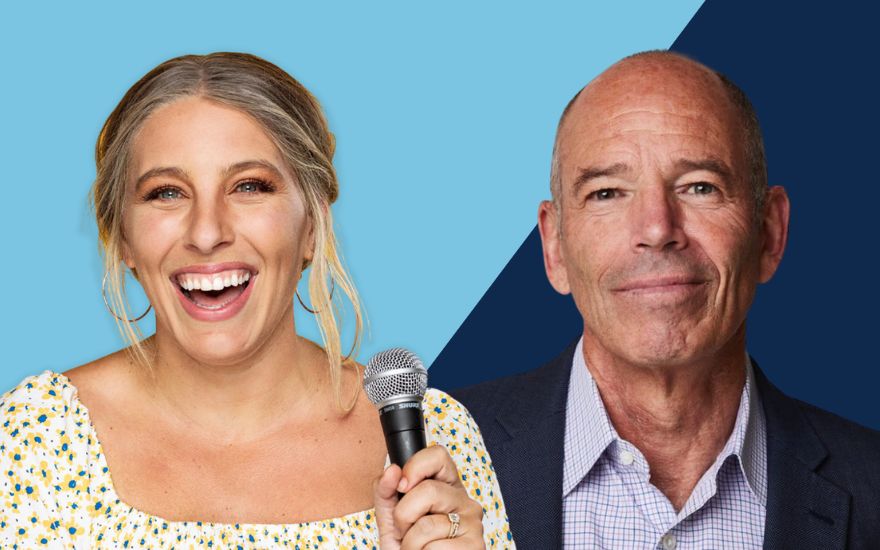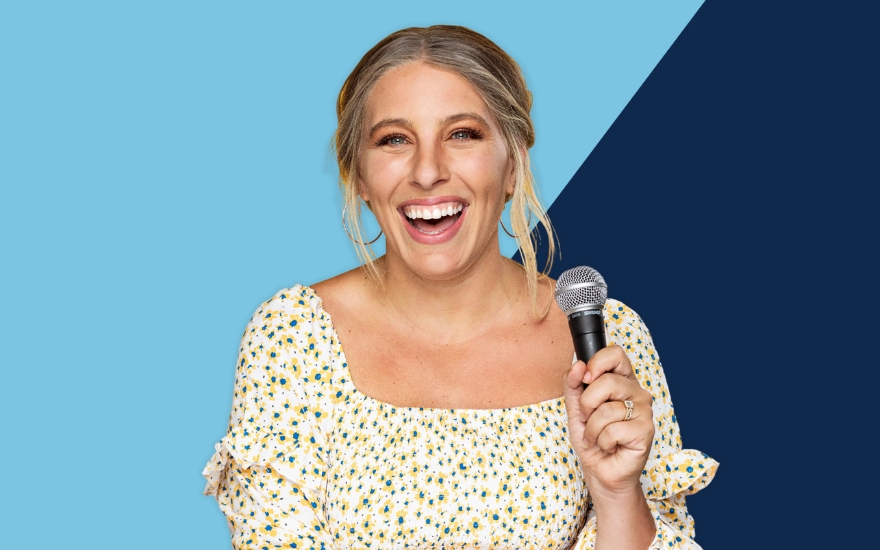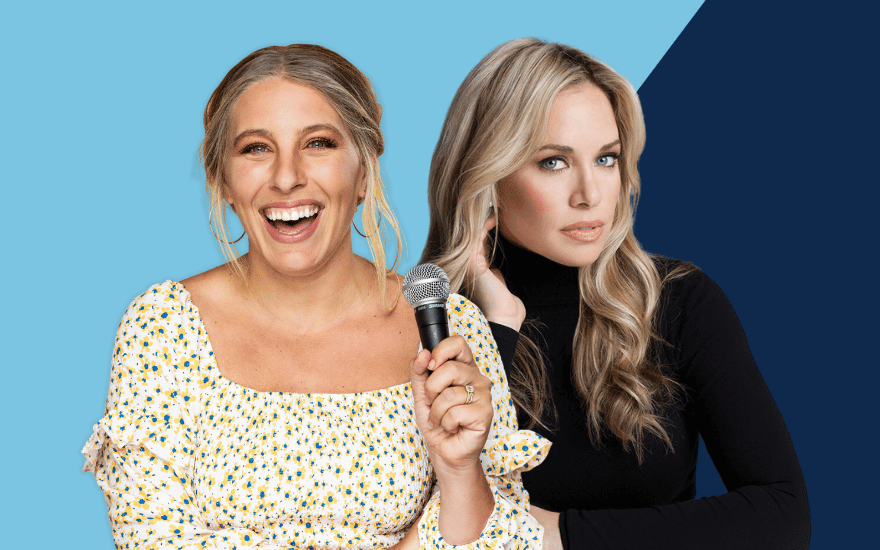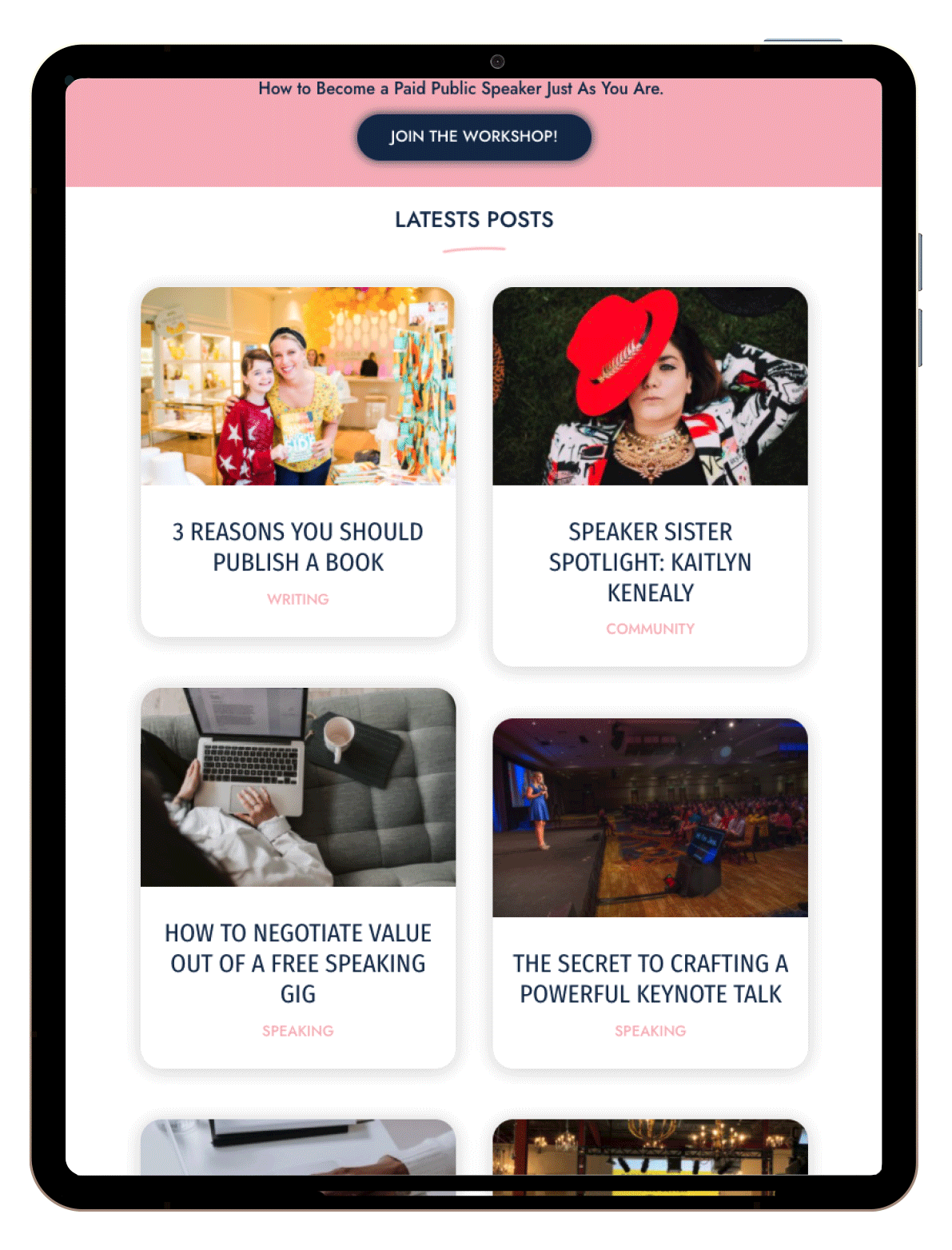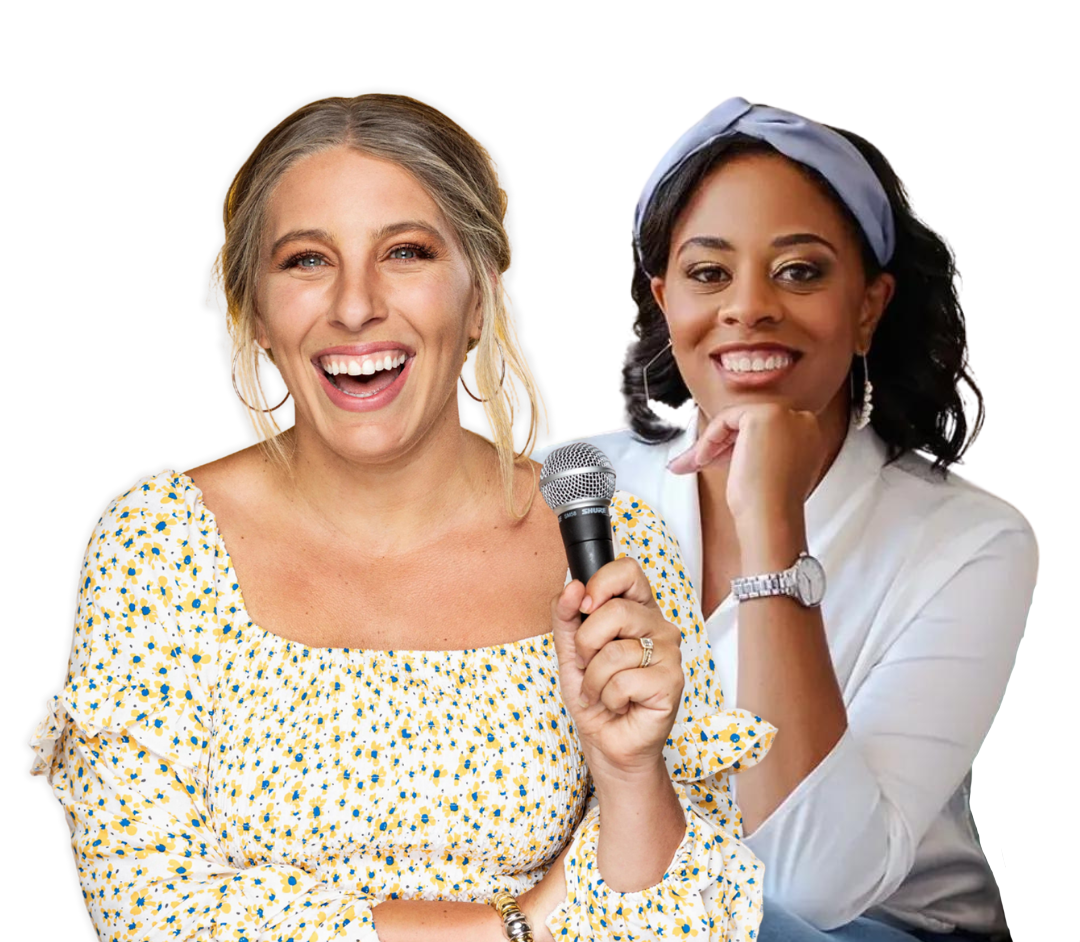


Don’t DIY Your DEI: Courageous Conversations with Antoinetta Mosley



JUMP TO
PODCAST HOME
LISTEN TO THE EPISODE
ON THIS EPISODE OF AMPLIFY
Today’s guest is Antoinetta Mosley, former MicDrop student and CEO at I Follow the Leader. They specialize in DEI strategy initiatives and consulting. In this episode, Jess and Antoinetta discuss finding courage in speaking and other aspects of life.
FOLLOW ANTOINETTA
Antoinetta Mosley, Founder of I Follow the Leader and Chief Encouragement Officer at Courage Candy
Antoinetta Mosley helps people reach their highest potential by teaching them the power of consistently cultivating courage. She’s the founder of I Follow the Leader and Chief Encouragement Officer at Courage Candy, and I’m proud to say a Mic Drop Workshop graduate.
SHOW NOTES
We all have at least a little bit of fear before we grab the mic. It takes a lot of courage to go up on stage and speak in front of people you don’t know.
So, how do we consistently find the courage to take that next step? Today, Antoinetta Mosley joins me for a conversation on courage – not just in speaking but other aspects of life.
Antoinetta Mosley helps people reach their highest potential by teaching them the power of consistently cultivating courage. She’s the founder of I Follow the Leader and Chief Encouragement Officer at Courage Candy, and I’m proud to say a Mic Drop Workshop graduate.
(00:00) Introducing Antoinetta Mosley
(03:25) Don’t DIY your DEI
(06:45) Calling out events that lack diversity
(11:15) “Hi, my name is (blank), and I help people (blank)”
(12:35) Antoinetta’s first gig
(15:00) How speaking has changed for Antoinetta over the last 7 years
(18:00) Courage in speaking
Amplify with Jess is produced by Earfluence and brought to you by Mic Drop Workshop.
TRANSCRIPT
Antoinetta – 00:00:01:
I think calling people in is just really important, acknowledging that there may be inequity that has happened in the past. If we see some underestimated individuals, are we sharing their posts? Are we celebrating them? Are we speaking their names? And rooms they’re not in. That’s how we as individuals can really amplify our voice, amplify the power that we have.
Jess – 00:00:33:
Welcome to Amplify with Jess Ekstrom, a show designed to help women get out of their head and into their zone of influence. My guest today is former student and superstar Antonetta Mosley, chief executive officer at I Follow the Leader, a leadership consulting firm specializing in DEI strategy initiatives and consulting. I met Antonetta first through a mutual friend, Kristen Carver-Smith Carver-Smith, at The New Fashioned, and then Antonetta came through Mic Drop Academy.
Antoinetta – 00:01:01:
For the last seven years, I’ve done training and workshops and so much, but being a keynote speaker is a different side of that coin. And so it was just so grateful to learn, to dig in, and then just the community of women, I literally was talking to another one of my speaker sisters this morning, right? So- Oh, I love it. Yeah, just really grateful for the communities. Really found out over the last seven years doing DEI work is I believe courage is the biggest missing component. And so I worked with top leaders, Fortune 500 companies, companies, global nonprofits, and there was something that kept coming up. And it was often leaders and change agents’ inability to have courageous conversations, which we’re calling them courage fueled conversations Because kind of like Jess said with Mic Drop, we’ve realized you have to be willing to come and fuel yourself and also get refueled from others around you to really be successful. Yeah, the book really helps people to consistently cultivate courage.
Jess – 00:02:14:
And I think you just did or explained one of the best tips that I can give for anyone who is looking to become a speaker or a thought leader is you look at the landscape around you. You look at all the information that you have in your personal experience and you pull out the theme. You’re like, after all of the work that I’ve done, the number one barrier that I saw was courage. And so for whoever is listening, that’s like a really great and simple way to think about things like, well, what do I want to speak on? What impact do I want to have? Well, I like to say, listen to the chorus. Like what’s the thing that keeps coming up and keeps repeating itself? You know, for you, it’s courage. For me, when I looked at my story, it was optimism. Lately, like if I can pinpoint the last five years, it’s been more imposter syndrome, which is where like my, I feel like my message is heading a bit more because the chorus has changed for me. And so it’s like, listen to the chorus. And for you, that was courage and courage has such a direct impact on DEI. How has the DEI landscape changed over the years, especially since the pandemic?
Antoinetta – 00:03:26:
Yeah, I think, you know, for me and other practitioners, I think it’s really important to have those friends and speaking or whatever field you’re in that you can go to. For support and for benchmarking. What we’ve really seen is people have wanted to get more engaged in culture building, in diversity, equity, inclusion. Belonging accessibility, but often don’t have the tools. And so What we say at our firm is don’t DIY your DEI. And so, right, making sure to get expertise when it comes to marketing or it or fundraising, right? There’s always a budget attached to it. We know to get more people in, we’re going to have to spend dollars. Often with DEI, leaders go, okay, let’s take our really, enthusiastic change agents in the organization and let’s put this on the And so while it’s great to have a committee, you really need someone who’s seen the landscape and has done the work before to help lead you in the right direction. We’re seeing a lot of well-meaning people doing more, but often unfortunately, a lot of harm happens when it’s not done the right way to create psychological safety.
Jess – 00:04:44:
Exactly. And don’t DIY your DEI. I love that. Now, specifically in the world of speaking and thought leadership, you know, Mic Drop Workshop started because I saw the discrepancy of women and gender, the gender imbalance in speaking and in books and thought leadership. But I am curious because like as a woman myself, that’s what I can speak to and that’s what I felt. But for you as a Black woman, like there’s so much tokenism, not just in speaking, but in thought leadership and in the world in general. What can we do like to help end that and uplift different voices?
Antoinetta – 00:05:29:
Yeah, I purposely wore this shirt, and so I’ll come up a little. But it has underrepresented, crossed out, and it has underestimated. And so this was something done… With Arlan Hamilton, who’s a venture capitalist who really helps underestimated founders. Yeah, and so a partnership with her and a message in the bottle. But I think it really is, you know, Starting to change our language, starting to change the way we think about things, right? Instead of minorities, right, can we use underestimated individuals? And I see someone saying, let’s change the narrative. Yes, right, our language matters. And so how are we describing ourselves? How are we describing others? And so acknowledging that, right, there may be inequity that has happened in the past, And so really as leaders determining what can I individually and as collectively, whether you’re at an organization, Association, what can we do about this? And it does take intentionality for sure.
Jess – 00:06:33:
And it also takes, I feel like, you know, and sometimes I struggle with this because we can talk about like the changes needing to be made at the top all day long. Like it shouldn’t be just white men picking speakers or picking, filling roles. But at the end of the day, sometimes we don’t have that direct like impact in order to change who’s at the top. But what we can change is where we’re sitting, where we’re on the other end as a speaker. And so as a speaker, like some of the things that we can do are who we refer to events. I like to think like the kind of two ways that we can help change the speaking industry as a speaker, even if we’re not the ones on the other end of the table picking speakers, are who we refer to events after we’ve spoken there or if we can’t do that event. And also finding ways to. Politely call up events that lack diversity. Can you speak about that? Because you are wonderful at doing this.
Antoinetta – 00:07:40:
Yeah, no, I really believe we’re in a time with social media and just the current climate where often people believe in calling people out. And so I really focus on, especially as a DEI practitioner, how can we call people in versus calling people out? And so the call people in looks like a personal email, right, a personal message. Not trying to write blasts. And sometimes you may have to call out, but are you willing to call people in more than you’re calling out? And so I can share a personal example. For me, right, my name is Antoinette. It’s actually Italian and Latin. However, most people have never heard Antoinette unless they’re Italian. And so often I have things that occur with my name. And so At one event, right, I was at an opening keynote and my name was mispronounced. And so that kind of throws you off like, oh, hold on, I thought we had this. But after I was able to just send the email right to the event planners this really helps me to come into a space well, if my name is pronounced well, and if the moderator is aware of that. I think calling people in is just really important And also, just like you said, Jess, there’s so much we can do individually. And so if we see some underestimated individuals, are we sharing their posts? Are we celebrating them? Are we speaking their name? And rooms they’re not in. That’s how we as individuals can really amplify our voice, amplify the power that we have.
Jess – 00:09:19:
I love that. That’s even, I mean, that’s accessible to all of us. Even if you’re not referring someone to go on a stage, sharing their posts, like you said, sharing their name in rooms they’re not in is an easy thing that we can all do. You know, one of the things that we do in Mic Drop Workshop and Mic Drop Academy is we come up with what’s called a speaker statement. And that speaker’s statement is like, hi, my name is Antonetta and I help people blank. And you have yours on your Linkedin profile. So for anyone who’s not following Antonetta right now, please do. But what that does is of course it brings you clarity on like who you are and what you speak on, but it also helps other people talk about you in, like you said, rooms that you’re not in. And so, so many of the time when I’m backstage and that’s kind of when, you know, before, after I’m at an event, I’m with the event planner. That’s kind of when I pry of like, so who else? Who’s in your lineup? Like what’s coming up on the docket for next year? And I’m kind of going through my Rolodex of who I should refer. But I can’t just be like, oh, you should book Antonetta. She’s a great speaker because that’s not scratching the itch of like what they need. I need to say, you need to book Antonetta because she’s going to make your audience wildly courageous. She’s going to change the landscape for your DEI. She’s going to make people think differently about inclusivity. And I have those kinds of word nuggets from you to make it easy to talk about you. So for anyone else who’s listening about like thinking of how do I get you, you know, referred or how do I get on those stages coming up with that speaker statement? I always think is step number one. Hi, my name is blank and I help people blank because then it makes people easy to talk about. Would you agree?
Antoinetta – 00:11:19:
I agree. And I can’t show you all right now, but my speaker statement is actually on my laptop. So it is actually on the back of my laptop. So whether I’m in the airport or whether I’m somewhere working, getting coffee, people look and read my speaker statement and people will often come up to me based on my speaker statement. My website, it, has my speaker statement. And so I think what Jess said is just so pivotal if your speaker statement needs to just be second nature to you. it needs to be. Something where even if people don’t totally know that your speaker statement that they can go, right? Antoinette helps with courage, right? She helps you consistently cultivate courage. Mic Drop really helped me with that in refining. And so I had done work with Kristen Carver-Smith and her team on the media side and refining. And then I did work with Jess and her team and Mic Drop Academy. And that was those two combinations of really honing in on my voice and my message and like, who am I in this season? What do I need to share with the world? Those were just a game changer. So yeah, really, really critical to get that statement.
Jess – 00:12:35:
Now let’s get into your personal speaking career. What do you remember your first gig or what that was?
Antoinetta – 00:12:42:
Yeah, I do remember my first gig. it was training actually. With the USTA Southern. Pretty soon after grad school, And I had done a speaking engagement at a nonprofit conference, right? Unpaid. And then they had, one of the leaders had missed it. And so they came to me, we had a meeting. And then that was my first booked engagement. And they are still a client today, seven years later. So really, really special. I always tell them like, you know, USTA people are my people because yeah, that was my first booked engagement and yeah, I did something with them just last year. Yeah.
Jess – 00:13:27:
How has your speaking changed over the past seven years? Like I know my speaking has… Like, actually, I was thinking about this analogy the other day. Like, the misconception I had around speaking in the beginning really changed my speaking style and my content. Like, in the beginning, I like to say I was a spotlight speaker. And now I’m more of a lighthouse speaker. And I would suggest everyone listening to, like, make this shift, whether mentally or actually physically. Like, a lot of times when we think about speaking, it’s like the TED Talk stage, the spotlight is on you. And that’s where a lot of our nerves come from, too, when we’re thinking this is about me like, this is about me and my story. And everyone’s looking at me. I need to be my best. And that is when I get, like, the most nervous is when I think about speaking as, like, a self-serving spotlight. But when I shifted my speaking to less of a spotlight mentality and what I like to say more of a lighthouse mentality is I’m now shining the light. I, as a guide for everyone else, is like, no, this isn’t about making me look good. This is about using my story, including the things that make me look bad, to teach people a lesson. And in fact, most of the most powerful lessons come from some of our worst moments or the times where I’m like, oh, I can’t believe that happened. And so I feel like that shift from a spotlight speaker to a lighthouse speaker really changed my delivery. And it changed my business. it changed my tone. it also changed. it changed my nerves. So how has your speaking changed over the last seven years?
Antoinetta – 00:15:09:
Yeah, I love that analogy. That’s so beautiful, being the lighthouse. And I would say, Mine is similar where even, you know, some of the terms I used in the beginning were like, okay, this is I help people right now. It’s to fuel people, right? And so really putting the onus on the individual. So I want to help fuel or help spark what’s already inside of you. And so I think that’s something that’s really changed with me. Like I’m not here, right, to do anything that’s not already inside of you. I just want to spark that enthusiasm, right? Fuel your courage, fuel what’s already inside. So I think mine is similar where you do think of it as I have to do well, like kind of like it’s a performance, right? Okay, I’m getting on this stage, I have to perform well, It’s very nerve wracking. And then. Now, when you just go, okay, if I’m just helping write five people in this audience, even if there’s 500, who needs to be more courageous for something very specific tomorrow or next week or next year, right? My job is done. And so not feeling like you have to perform, right? Just really focusing. And I did, you know, to work on my nerves, I went to a coach. And something we focus on is just how do you want the audience to feel? And that was a game changer. So before I go into every audience, right, I come, I come in with, this is how I want them to feel. And it’s right. It’s not about me. This is what I want the audience to feel about. When I leave the room. And that just even shifted it for me.
Jess – 00:16:55:
One kind of exercise anyone can do who’s listening or watching is, I like to say, write your future testimonial. So write what it is you want someone to say about you after hearing you speak or after working with you or whatever it might be. So it’s like I know that I want people to feel like they were at like the kitchen table or like sitting across with a cup of coffee and not like this very, you know, like speaking down. I want people to feel like I’m speaking to them on eye level. So I write that testimonial. And then when you’re trying to find your style, it’s like, well, am I emulating and am I following the thing that I want to be known for and that I want the audience to feel like you said. But to close, I’d love it if you could give anyone who is maybe just getting started in speaking, what’s a piece of advice or something that has helped you either with courage and confidence or just like what do you want them to take with them? As they enter into the speaking world.
Antoinetta – 00:18:03:
Yeah, I think, you know, I think courage does help so much with speaking. And so I think what I would share is just to keep getting up, right? And consistently cultivating that courage, consistently taking steps towards your dreams. And so I think even what you just said with the testimonials is really important. You really have to take the time to reflect. The best speakers are reflectors. They are journalists. They are people who know how to tell their story really well to where it does spark others to want to make a change, right? With Jess, it’s going to spark you to be more optimistic in your life, right? If you see me, hopefully you’re going to go, yes, I need to be more courageous. And so I really would recommend people above all to really focus on your story. We can get so bogged down by social media and other stories. But what is your story and just your special sauce?
Jess – 00:19:05:
I love that. Yeah. I like to tell people I think for a living, I like my thoughts for better or worse is what my business is. And that’s great. Like create before you consume. It’s so easy, especially in the speaking world, like to sometimes consume too much to where your own voice and your own thoughts get lost. Like there’s a really fine line between inspiration and comparison that I’ve found. It’s like, yeah, it’s like, I want to be inspired by people while also knowing that I don’t have to be them. And that’s like a line that I’m still walking, but that’s a really great point. And Antoinette, thank you so much for being here and everyone go by Courage Candy, follow Antoinette on Linkedin. You have a live series as well, don’t you?What do you do?
Antoinetta – 00:19:55:
Yeah. Yeah. We do podcast episodes. So yes, feel free, connect with me. And any questions you have about speaking about mic drop, Mic Drop Workshop, let me know. We are here to support. I will always cheer you on. So never be afraid. And I always say this, connect, please don’t follow me. Please connect with me because then it’s a reciprocal relationship. So if you want to connect, connect with me, don’t just follow me. I want to follow all the, or know all the great things you’re doing too.
Jess – 00:20:29:
Oh, I love it. Antoinette, thank you. Thank you everyone for tuning in and we will see you all soon. Bye everyone. Thanks for listening to Amplify. If you are a fan of the show, show us some podcast love by giving us a rating and review. And give us a follow at Mic Drop Workshop and at Jess Ekstrom. This episode was edited and produced by Earfluence and I’m Jess Ekstrom, your host. Remember that you deserve the biggest stage, so let’s find out how to get you there. I’ll see you again soon.
MORE FROM THE AMPLIFY PODCAST
Netflix Co-founder Marc Randolph on Testing New Material On Stage
JUMP TOPODCAST HOMELISTEN TO THE EPISODEON THIS EPISODE OF AMPLIFYAs co-founder and first CEO of Netflix, Marc Randolph led the company from its inception in 1998 through its IPO in 2002. He left the company a year later to pursue other passions, which includes public...
More Doors Open When You Take the Opportunity
JUMP TOPODCAST HOMELISTEN TO THE EPISODEON THIS EPISODE OF AMPLIFYWhen Jess was in college, she applied for an internship with NBC’s Today Show…and got it. In the back of her mind though, she was pretty sure she only got the job for a nefarious reason. But did that...
Creating Confidence On Stage, with Heather Monahan
JUMP TOPODCAST HOMELISTEN TO THE EPISODEON THIS EPISODE OF AMPLIFYToday we explore what many of us struggle with - the power of confidence and self-belief. The trick is that confidence is a muscle we can work on every day, and we can create a strong foundation from...

Mic Drop Workshop® helps women tell and sell their story as paid public speakers
Subscribe to our weekly newsletter!
Receive direct access to upcoming events and event planners who are looking for public speakers, keynote speakers, motivational speakers, event industry trends, and our favorite speaker products & services.
© Copyright 2024 Jess Ekstrom. All Rights Reserved | Terms & Conditions | Privacy Policy | FAQ | Contact
Website & Branding Design by Orange Moss Creative




